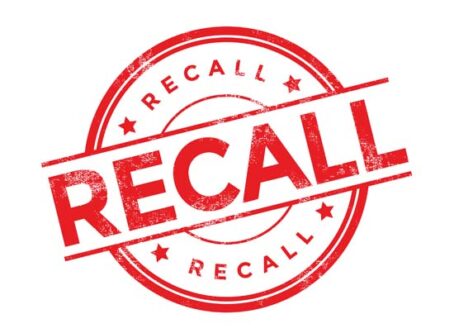From paperwork to scams: OOIDA shares tips for drivers to avoid pitfalls
When it comes to helping truckers get – and stay – compliant, the business services department of the Owner-Operator Independent Drivers Association fields a myriad of calls from drivers looking for help.
On a recent episode of Land Line Now, Aron Lynch and Joe Biggs with the Association’s business services department shared some of the concerns they’ve been hearing from members when it comes to maintaining compliance.
Listen to the full segment below.
One question involved what paperwork drivers should keep with them in their trucks at all times. Lynch says the following paperwork is required to be kept in the cab, and should be organized for easy access if requested:
- Insurance certificate
- Authority letter
- Lease agreement if you’re leased on to a company
- Certifications for special cargo
- Weight distance permit
- IRP cab card
- IFTA license
- ELD Info and user manual
- Blank Record Of Duty logs, a minimum of 8 days
“Essentially, just have a checklist. Have a binder,” Lynch told Land Line Now. “Have folders in that binder to where you can tab over… If you’re unable to find some of this paperwork upon request, it can be a violation – even if you do have it because you aren’t able to present it at the time of inspection. And the officer’s not going to wait three hours for you to figure it out.”
On top of the required documents, Lynch says that drivers may want to also keep inspection certificates, records of maintenance, fuel receipts and food receipts for filling out per diem.
Additionally, drivers traveling through states with highway use taxes in place will want to keep records of cargo weight and miles traveled in state. Currently, five states – Connecticut, Kentucky, New Mexico, New York and Oregon – have some version of a highway use tax in place for commercial vehicles.
Scams targeting truckers
The pair also discussed a scam that, unfortunately, many drivers still fall victim to. These are text, email and mail scams that notify you that your UCR or biennial updates are due – even if you have already completed the update.
Biggs says scammers “bombard” truckers with these requests until, “you’re not sure what’s legit and what’s not.”
“These scam companies, they don’t look to see if this stuff is updated,” Biggs told Land Line Now. “They couldn’t really care less, because they’re going to get people to pay them anyway… they’re going to keep sending this stuff out, because you’re going to get someone that maybe even did [their update] already, but they’re going to do it again because they got a letter saying it needed to be done – at exorbitant costs.”
So how do drivers keep falling for this kind of scam? Biggs says that many of these companies will use names that make them “sound official”, with terms like “DOT” in the company name. However, he says if you look at the fine print, these companies will specify they’re not affiliated with the U.S. DOT or Federal Motor Carrier Safety Administration.
Furthermore, Lynch adds that those government agencies will never send texts.
“It’s not an option that’s on the table,” he said.
On top of this common “compliance” trap, Crystal Minardi of the Association’s permits & licensing department recently discussed a scam that aims to “hijack” DOT numbers.
If you are unsure about a notice you have received, both Lynch and Biggs recommend calling OOIDA’s business services department for assistance. LL









